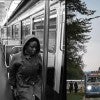
To tackle pandemic racism, we need to take action, not just take to social media
Our public transportation systems were built on a foundation of racism, and the only way to truly fix them may be to raze them and rebuild from the ground up.

To tackle pandemic racism, we need to take action, not just take to social media
Our public transportation systems were built on a foundation of racism, and the only way to truly fix them may be to raze them and rebuild from the ground up.

For more and more Houstonians, dreams of homeownership remain just that
In the past decade, as home prices and rents have increased faster than incomes for many residents of Houston and Harris County, buying a home has become increasingly difficult, according to Kinder Institute research.
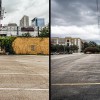
Less space for parking is a crucial step toward walkability in Houston
By design, Houston is car-dependent. Yet, Kinder Surveys have shown that half of Houstonians want to live where they can walk more and drive less. Recently approved ordinances that promote walkability in neighborhoods should help. Importantly, in certain areas, the new regulations will eliminate and reduce minimum parking requirements, which are considered costly, unfair and inefficient by many experts.
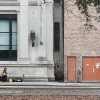
Racism has shaped public transit, and it’s riddled with inequities
From funding, planning and infrastructure, to design and policing, many transit agencies essentially have built two systems with different standards for “choice” and “dependent” riders (that is to say white and Black).

The education—and miseducation—of an urban planner
James Rojas has spent the better part of his career reconciling his formal training with his lived experience as a Gay Chicano.
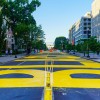
How the mayor of Washington D.C. used ‘graffiti’ to protect public space
Washington, D.C. Mayor Muriel Bowser ordered “BLACK LIVES MATTER” to be painted on a street near the White House. The act would have been considered vandalism had it not been done by city workers.
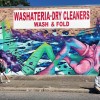
From civic pride to slowing traffic, public art for the public good
Public art is an important part of urban design that strengthens community identity and pride. It can have cultural and economic benefits for neighborhoods and it’s accessible to everyone. Great and unexpected pieces of public art can be found across Houston. And best of all, it can be enjoyed at a safe distance from others.

What if we spent billions to improve access instead of gridlock?
American cities are caught in a cycle that goes something like this: Expand roads to mitigate gridlock, which encourages more people to drive, which produces more congestion, which is addressed by expanding roads, which encourages more people to drive and on it goes. According to a new report, the continual expansion of roads only treats a symptom — congestion — and not the disease — sprawl. But what if we’re focusing on the wrong thing?
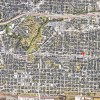
Many residents feeling far from safe on Near Northside streets
Near Northside residents’ perception of safety and the quality of streets and sidewalks are assessed in a pair of new reports from the Kinder Institute. The findings show subpar infrastructure and fears of crime and cars are endangering many in the neighborhood.
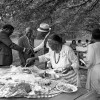
A rush to map freedom colonies before a crucial part of history is lost
For the past six years, Andrea Roberts has been dispelling misconceptions about the history of African American placemaking in Texas through her Texas Freedom Colonies Project.
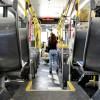
How METRO made bus service a priority and became a transit trendsetter
In 2015, METRO took its outdated bus network down to the studs and designed an entirely new regional transit system that made bus service less complicated and more frequent along the busiest routes. The results made transportation officials in cities across the country take notice.
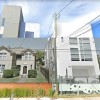
Houston doesn’t have zoning, but there are workarounds
So, what’s the deal with zoning laws in Houston? While it’s true the city has none, it still regulates development using a complex system of codes. These codes, however, don’t govern land use.
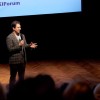
Public libraries are the crazy, radical ideas that might save society
In his Kinder Institute Forum talk, sociologist Eric Klinenberg discussed the amazing power of the public library system, as well as the biggest threats to this vital and sorely neglected part of America's social infrastructure.

Houston small-business survey reveals how city and state can better support manufacturers
Small businesses are only as successful as the policy, investment and regulatory environment they operate in. For small enterprises especially, flexibility and nimbleness are critical to growth. To thrive, clear pathways must exist for firms, regardless of size, to effectively scale, expand operations and further contributions to the economy, through new jobs, tax revenue streams and technological innovation.

Could cities, not national governments, be the ones to fight the climate crisis?
What happens if cities rethink their policies to combat climate change rather than waiting for nations to do so?
Rice University
Kraft Hall
6100 Main Street, Suite 305
Houston, TX 77005-1892